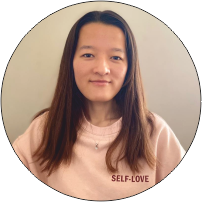Over time, people changed their posting style, using fewer negative references such as “death”, instead opting for more social words such as “we” and “us .
#BLACKLIVESMATTER BECAME A HASHTAG in the summer of 2013, when an Oakland, California, labor organizer named Alicia Garza responded on her Facebook page to the acquittal of George Zimmerman, the man who gunned down Trayvon Martin. Since then it has become the banner under which dozens of disparate organizations, new and old, and millions of individuals, loosely and tightly related, press for change.
On May 29th, George Floyd, an African American man living in Minneapolis, Minnesota was brutally murdered by a police officer who kneeled on his neck for upwards of eight minutes while three others helped the first officer and watched as George cried out to them saying, “I can’t breathe.” After days of protests across America, all four officers were finally arrested. While these officers have been arrested, this is just one case of police brutality targeted at people of color among many, many others that people are speaking out against and demanding justice for. The fight is not yet over.
As protests spread across the world against police brutality, systemic racism, and injustice, this is a great time for our community to reflect on what we can do to empower Black lives and all people of color within our communities and within our world. In order to accomplish this, we must be more than “not racist;” everyone must fight to be actively anti-racist. But how?
Social media; Social media, especially Twitter, due to its pervasiveness and adoption, has provided the fundamental infrastructure to this activist movement.
“Because of social media we reach people in the smallest corners of America. We are plucking at a cord that has not been plucked forever. There is a network and a hashtag to gather around. It is powerful to be in alignment with our own people.” Said Cullors-Brignac
Results show that social media reflects the evolution of the BLM movement—the movement has kept on gaining newcomer attention in large volumes as different events unfolded between 2014 and 2015. We also find considerable continued participation, associated with increased social orientation over time. Significant geographical differences further characterize engagement and linguistic expression in this movement; states of high police violence exhibit greater negative affect and references to death and loss.
Finally, we also found that participation in future protests was associated with a spike in the intensity of social media conversations, as well as an increase in negative affect and sadness, heightened cognitive and perceptual processing and manifestation of a collective agency. While it is challenging to answer whether this observed digital activism is indeed the same real world action.

Tenzin Yangchen
I am Tenzin Yangchen. I am currently completing my BA from Jyoti Nivas College. Being happy is my primary goal in life.
